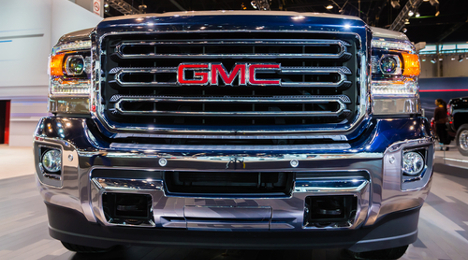As sales continue to rebound throughout Canada in the midst of the coronavirus pandemic, credit availability is playing an even more important role as dealers and buyers work together toward delivery.
To help dealerships, finance companies and other part of the industry, Autocorp Technologies is working with Cherokee Media Group to host a free webinar titled, “Increase Your Sales Today with a Credit-First Approach.”
Autocorp’s Andrew Lemoine and Dee Murphy are scheduled to emphasize three main takeaways during the session that’s scheduled for 2 p.m. (ET) on Oct. 6. They include:
• Relevant current key market statistics
• Advantages of a credit first approach
• Introduction to a revolutionary new credit tool
“Within today’s retail journey consumers are spending their time in dealerships settling on a purchase before having any idea what they are qualified to buy,” Autocorp said.
“This webinar will examine the current market trend of a credit-last sales approach and identify key opportunities for dealers to increase their sales by adopting a credit first strategy,” the company added.
Registration for the webinar can be completed on this website.
Thursday is the best day for auto dealership traffic in Canada. Consumers are keeping their cars an average of 11.5 years. According to research from global data company Freckle IoT, those are just two of many pieces of information that auto dealers should know, as targeting the correct core audience becomes more important.
Freckle IoT notes that technology and specific shopping behaviors are becoming more prominent factors in auto buying, and that means auto dealers should be armed with as much consumer data as possible.
In its report, “Freckle IoT Path to Purchase, Canada Automotive Footfall Report” for the fourth quarter of 2018, the data company noted various statistics that should interest auto dealers, such as the fact that 59 percent of car buyers spend time doing online research. Forty-six percent of shoppers use multiple devices for research, and six out of 10 shoppers are undecided on a specific vehicle when they enter a dealership.
The data company also released a report for the United States. (And one way the U.S. report differed from the Canadian report is that Friday is the best day for U.S. auto dealership traffic).
Like buyers in the United States, price and reliability are the No. 1 priority for Canadian buyers, according to the report.
Also similar to the U.S. report, the data on auto consumers is plentiful. The report notes that in Canada, the average consumer visits more than five dealerships before buying.
“It is essential to remember this and always be cognizant that you are not the only game in town,” the report notes, adding that consumers also spend an average of six months researching a vehicle they will potentially buy.
The survey also weighed in on the competition between traditional and hybrid vehicles, showing that consumers still prefer traditional.
“So, while the market pressures are playing to the trends with hybrid technology, the consumer still is not on the bandwagon fully,” the report states.
Freckle IoT accumulated the data for the survey by sending more than 8,000 surveys to its customers using its Killi app to uncover specific automotive shopping habits. The company also physically monitored more than 3,000 auto dealerships.
That data includes the top five activities that car shoppers conduct online. They are:
— researching car prices;
— finding actual cars listed for sale;
— comparing different models;
— finding out what their current car is worth;
— locating a dealer or getting dealer information
The report also addresses how dealers should market their vehicles to the public, and it mentions that the car sharing community is rapidly developing. By 2030, the report states, using PwC as a source, the share of autonomous driving could rise to as much as 40 percent.
“This will be a massive factor when developing a marketing plan,” the report states.
Negative equity, when a consumer owes more on an auto loan than the market value of the vehicle, is a growing issue for Canadians, according to a news release announcing the 2019 Canadian Black Book Best Retained Value Awards.
Canadian Black Book says the awards illustrate to Canadians which four-year-old vehicles hold their value best, and the awards help educate consumers on lower depreciation models across 23 categories of vehicles and three overall brand categories.
Consumers often roll negative equity — which could equal thousands of dollars of additional debt — into subsequent auto loans. That can compound personal debt, Canadian Black Book says. The company notes that understanding negative equity, which cars hold value well, and when during your auto loan you will be in an equity position, is important.
For 2019, overall retained value across all vehicle models sold in Canada is 52 percent for 2015 model-year vehicles MSRP, according to Canadian Black Book. That is the second highest year on record, with last year’s 53 percent being the highest.
The 2019 “Overall Brand” awards measure retained value across all models a brand offers. Toyota was the winner in the “car” class as well as in the “truck/crossover/SUV” category, and Porsche came out on top in the “luxury” category.
This year's awards feature three new vehicle categories. Mercedes-Benz GLA class won the “sub-compact luxury crossover” category, the Jeep Renegade was the winner in the “sub-compact crossover” category, and the BMW i3 took the honors in the “zero-emission” category.
Canadian Black Book noted that trucks and SUVs have been dominating demand over the last several years in Canada because of their value in the used-vehicle market. The top segments for value retention over four years are small pickups at 73 percent; full-sized luxury crossovers/SUVs at 63 percent; and full-sized pickups at 61 percent.
The premium sports car segment broke that truck/SUV trend by holding 64 percent as a category overall, and the Chevrolet Corvette won in that category for a second consecutive year.
According to recent Canadian Black Book research, 97 percent of Canadian car owners believe more education on loan term and equity position should be made available during the car buying process. The company noted that it recently launched a free Equity Calculator on its website. After consumers enter their vehicle and finance information, the tool produces a chart showing when they will have equity in their vehicle during their finance agreement.
Other highlights of the awards:
—Ford Mustang won in its segment for first time, holding 64 percent of its 2015 original MSRP, after seven straight years of Dodge Challenger wins.
—Jeep Wrangler has won nine consecutive years in its segment, holding 85 percent value.
—By region, Japanese manufacturers led the way with twelve first place finishes, European brands had eight wins, and North America had six.
For a full list of 2019 Canadian Black Book Best Retained Value Awards winners, go to: https://www.canadianblackbook.com/awards/
Informing Ontario car-buyers about their right to all-in price advertising is the aim of a new province-wide consumer awareness campaign launched by the Ontario Motor Vehicle Industry Council (OMVIC) this week.
The Ontario vehicle sales regulator said that despite current laws regarding consumer protection rights, recent research shows that some car-buyers may be uninformed that dealer advertising with the price for a new or used-vehicle must include all fees and charges.
Via TV, radio and social media, OMVIC began advertising on Monday to educate consumers who are unfamiliar with Ontario’s existing consumer protection regulations aimed at restricting dealers from making transactions that include unexpected fees.
“This illegal practice is not only unfair to car-buyers, it gives non-compliant dealers an unfair advantage over those dealers whose advertised prices include all fees and charges and provide transparency to consumers,” OMVIC chief executive officer and interim registrar John Carmichael said in a news release.
According to OMVIC, since 2010, it’s been the law that with the exception of the harmonized sales tax in Ontario and safety standards certificate, if the vehicle is advertised unfit or as-is, dealers must advertise a price that includes all fees and charges.
Meanwhile, just last year, 29 of 50 Greater Toronto Area new-car dealers attempted to add what OMVIC called “surprise fees” to their advertised prices when visited by OMVIC mystery shoppers.
OMVIC said that fees or charges such as freight, pre-delivery inspection/expense, administration fees and government levies must be included in the advertised vehicle price from a dealer. And if a dealer wants to charge for products or services that they have pre-installed on a vehicle, those costs must be included in the advertised price, as well.
“Less than half of Ontario car-buyers know they have a right to all-in price advertising,” said Carmichael. “And this is problematic because OMVIC still finds unacceptable levels of non-compliance with the all-in pricing regulations by some dealers.”
The Ontario Motor Vehicle Industry Council announced it recently launched a province-wide multi-media campaign to increase awareness of all-in price advertising.
OMVIC said it started the campaign following research the council conducted that showed some Ontario car dealers continue to add additional fees to their advertised prices — though it is illegal and disadvantages law abiding dealerships.
“Since 2010 car-buyers have had right to all-in price advertising”, OMVIC director of communications and education Terry O’Keefe said in a news release. “That means dealers must include all fees, except HST and licensing, in any advertised vehicle price.”
The council said when dealers don’t include all fees it is unfair to car-buyers and non-compliant dealers get an unfair edge over dealers who advertise prices which include all fees and charges.
“If consumers know they have a right to all-in price advertising, they are able to protect themselves should they encounter non-compliant advertising,” OMVIC said.
The Ontario-wide campaign has used television, radio, online, billboard/transit and social media advertising to inform car buyers about advertising pricing.
OMVIC’s awareness initiative includes a TV commercial directed at consumers that says, “Buying a car? The fun is back! Ontario made all-in price advertising the law for Ontario car dealers — no more hidden fees. All-in price advertising: it’s your right!”
The campaign’s 15-second TV commercial along with a 36-second radio message is currently available on Youtube.
Below are examples of fees or charges that dealers must include in an advertised price, according to OMVIC.
- Freight
- PDI-PDE (pre-delivery inspection/expense)
- Administration (Admin) fee(s)
- Government levies (air tax, etc.)
- Safety and e-test (unless the ad contains a mandated "Unfit Vehicle" or "As-Is Vehicle" statement)
For more information on all-in price advertising, visit OMVIC’s website.
A recently released autoTRADER.ca survey suggests steering clear of car-sharing services, taxis and even public transit this Valentine’s Day.
Ninety-two percent of Canadians say they find it appealing when their date shows up driving their own car, according to the website’s online survey — Revving Up for Romance — which examines the role of the automobile in modern-day dating.
Almost half of the respondents surveyed — 48 percent — reported that they would find a borrowed vehicle either unattractive or “embarrassing beyond words.”
“People, regardless of their age, tend to equate certain ideals with certain possessions,” Jess O’Reilly, who is a “sexologist,” said in an autoTRADER.ca news release.
“Owning a car symbolizes freedom, success and reliability, all qualities that look good to the opposite sex when one is on a date.”
The Revving Up for Romance survey was conducted among Angus Reid Forum panelists in late January.
Survey results have been statistically weighted according to education, age, gender and region Census data to guarantee a sample representative of the adult population of Canada.
Additionally, the survey also examined Canadian dating sentiment amongst millennials in particular.
Ninety-five percent of Canadians ages 18 to 34 say it's appealing for their date to have their own vehicle, according to the survey.
"It's too easy to say that we are what we drive — or in this case, we are how we drive. Vehicles play an integral role in our everyday routine, but their place in the lives of Canadians on the dating scene is quite telling," autoTRADER.ca senior editor Jacob Black said.
"If people want their dates to arrive in their own car, drivers should also want to take care of their date and show them consideration, sophistication and class."
Along with owning a car, Canadians also say safe driving is important when out on a date.
Drinking alcohol or using drugs is seen by 74 percent of Canadians as being the worst activity a date could do while driving, followed by texting at 12 percent and road rage at 11 percent.
Eighty-three percent responded that a second date would be unlikely if their date drove in an aggressive or unsafe manner.
For other survey trend highlights and more information visit Revving Up for Romance on the autoTRADER.ca website.
LGM Financial Services announced Thursday that the Auto Dealers Against Distracted Driving Campaign — its 3rd annual corporate initiative — will launch on Mar. 1.
The initiative aims to educate Canadian dealers' staffs and customers about positive driving habits and asks them to take a formal pledge against distracted driving.
Roughly 4,000 pledges against distracted driving were collected last year after more than 700 dealers Canada-wide participated.
“One of the most exciting things about this initiative is the amount of control individual dealerships have over the campaign’s roll out and activities,” said LGM vice president of sales for the Quebec region, Marc-André Lefebvre in a news release. “We supply them with both hard copy and digital campaign material to support their efforts and help kick start conversations with customers, but for the most part, the campaign is what they make of it.”
This year, LGM says, many dealers have already signed on to lead their own local campaigns, in-store and online.
Each year distracted driving is a factor in an estimated four million vehicle collisions in North America, according to the Canadian Automobile Association.
“Something as simple as sending a quick text or engaging with a chatty passenger has proven to have a devastating impact on road safety,” said Nathalie Sarault, a LGM dealer development manager. “As a customer prepares to drive off the lot in their new car, there’s a valuable opportunity to reinforce the perils of driver inattention to a captive audience.”
LGM incepted the Auto Dealers Against Distracted Driving Campaign in 2015.
Supporters of the initiative include The Lowe-Martin Group, Canadian AutoWorld and Autosphere.ca.
March 1 marked the official start of the 2016 Auto Dealers Against Distracted Driving Campaign across Canada, and 670 dealerships have currently registered nation-wide to participate.
Customers walking through the doors of any of these dealerships over the next month will be asked to do more than just browse the inventory. They will also be encouraged to take a pledge against distracted driving.
This serious issue is responsible for 4 million vehicle collisions a year in North America. The campaign was launched by LGM Financial Services Inc. as a platform for Canadian dealers to address this growing issue. And by adding their store name to the cause, LGM shared “auto dealers are joining forces in their communities to say: we are not okay with distracted driving.”
Linda Thomas, of Applewood Auto Group, said, "This is our second year participating in the campaign and we're hoping to build off of the great response we saw from our customers last year. Our Applewood Kia location in Surrey, B.C., was among the top dealers in the country with 618 individual pledges collected over the course of campaign month.
"It's important we engage directly with our customers because we believe that the act of physically signing your name will encourage a real behavioral change. We hope our campaign will encourage them to think twice before reaching for their phone while behind the wheel,” she continued.
Customers who visit participating dealerships in March will be asked to make a personal pledge against the distracted driving and make a formal commitment to improve road safety by not driving distracted.
Pledges from customers and dealership employees can also be submitted online at www.distractionfree.ca.
LGM management explained the campaign is designed to educate drivers on solutions to “resist the urge” to drive distracted, such as pairing to blue tooth and securing potential distractions before starting a trip.
"A total of 433 dealerships registered for our inaugural campaign last year and today, we are already sitting at 670 dealers, which is approximately a 50 percent increase — and there's potential for that number to grow since dealers can register right up until the end of March," says Marc-Andre Lefebvre, vice president of sales for the Quebec region at LGM. "Measuring registered dealers is only one form of engagement; we are also aiming to surpass last year's campaign pledge count of 3,000 and I'm confident we will do that."
The campaign is supported by Sovereign General Insurance Company and The Co-operators.
Follow the national campaign on Twitter @LGMCanada.
TRADER Corporation recently announced that it will be hosting the second annual Industry Day as part of the Canadian International AutoShow in Toronto.
Taking place on February 12 and featuring activities tailored for OEMs, agencies and automotive dealers, TRADER will also present an automotive sales and marketing event titled, “Carology: The Science of Selling Cars.”
The event will be free for industry professionals only and will include complementary early access to the AutoShow floor.
The Carology event will focus on how Canadian consumers shop for cars today, including their influences, where and how they research, how many dealerships they visit and recommendations for the industry to better meet their shopping desires.
Carology will feature an expert panel, including the following industry veterans:
- Scott Monty – CEO & founder, Scott Monty Strategies
- Nick King – Director of business intelligence & market research, AutoTrader UK
- Ian MacDonald – Director of consumer marketing & experience, autoTRADER.ca
- Kevin Coombs – Director of marketing intelligence, TRADER Corporation
For more information or to register for the event, click here.
The top three most-appraised vehicles Canadian dealers saw last month were, you guessed it, trucks.
To be more specific, they were light-duty trucks, and you probably won’t be surprised which ones they are, because they’re the usual suspects: Ford F-150, GMC Sierra 1500 and Ram 1500.
That’s according to Dealertrack’s monthly Tradetracker report for the month of January. The top five weren’t all trucks, though; those three goliaths were followed up by the Toyota Corolla and the Dodge Grand Caravan, respectively, to round out the top five most-appraised vehicles, overall, by Canadian dealers last month.
Broken down by domestic and import dealer, the results of January’s Tradetracker report are more of the same. The domestic vehicle most appraised by domestic and import dealers? The F-150. The import vehicle most appraised by import dealers? The Corolla. And the import vehicle most appraised by domestic dealers is Mazda’s Mazda3.
From the other side, the vehicles most looked at by trade-in owners boils down to just two vehicles, regardless of dealer type: the F-150 (domestic) and the Toyota RAV4 (import).
The Tradetracker brand of the month for January, Honda, experienced a bit different vehicle interest last month. Canadian Honda dealers’ most-appraised vehicles last month were the Corolla, Hyundai Elantra and Grand Caravan, respectively. From the other end, the vehicles most looked at by trade-in shoppers at Honda store last month were the Honda CR-V and the Civic.












